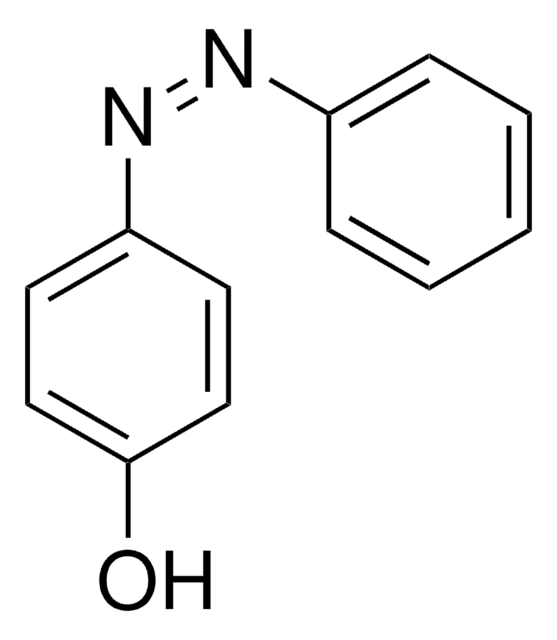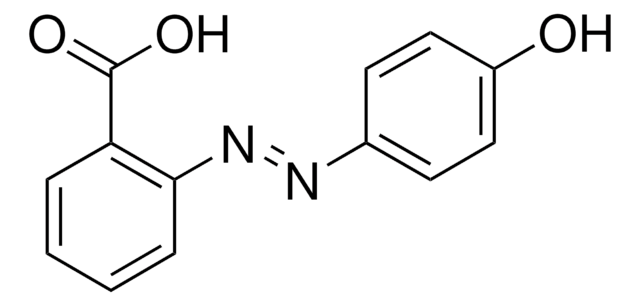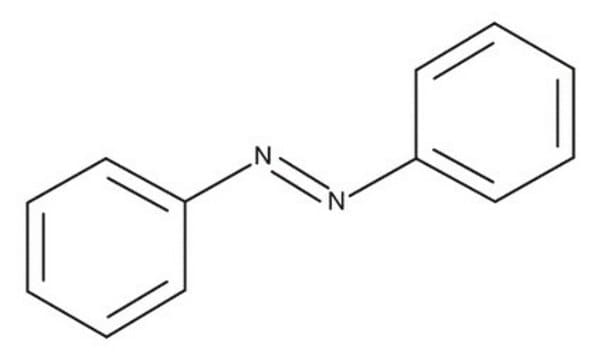479624
4-(Phenylazo)benzoic acid
98%
Synonym(s):
4-(2-Phenyldiazenyl)benzoic acid, 4-Carboxyazobenzene, Azobenzene-4-carboxylic acid, Azoic acid, p-Phenylazobenzoic acid
About This Item
Recommended Products
Quality Level
Assay
98%
mp
247-250 °C (lit.)
functional group
carboxylic acid
SMILES string
OC(=O)c1ccc(cc1)\N=N\c2ccccc2
InChI
1S/C13H10N2O2/c16-13(17)10-6-8-12(9-7-10)15-14-11-4-2-1-3-5-11/h1-9H,(H,16,17)/b15-14+
InChI key
CSPTZWQFHBVOLO-CCEZHUSRSA-N
Related Categories
1 of 4
This Item | 33015 | F0507 | W248703 |
|---|---|---|---|
| assay ≥98% | assay ≥98% | assay ≥95% | assay ≥95% |
| agency reag. Ph. Eur. | agency reag. Ph. Eur., suitable for EPA 1633 | agency - | agency meets purity specifications of JECFA |
| Quality Level 100 | Quality Level - | Quality Level 100 | Quality Level 400 |
| form liquid | form liquid | form liquid | form liquid |
| pH 2.2 (20 °C, 2.2 g/L) | pH 2.2 (20 °C, 2.2 g/L) | pH 2.2 (20 °C, 2.2 g/L) | pH 2.2 (20 °C, 2.2 g/L) |
General description
Application
Signal Word
Warning
Hazard Statements
Precautionary Statements
Hazard Classifications
Eye Irrit. 2 - Skin Irrit. 2 - STOT SE 3
Target Organs
Respiratory system
Storage Class Code
11 - Combustible Solids
WGK
WGK 3
Flash Point(F)
Not applicable
Flash Point(C)
Not applicable
Choose from one of the most recent versions:
Already Own This Product?
Find documentation for the products that you have recently purchased in the Document Library.
Customers Also Viewed
Our team of scientists has experience in all areas of research including Life Science, Material Science, Chemical Synthesis, Chromatography, Analytical and many others.
Contact Technical Service
![4-[4-(Dimethylamino)phenylazo]benzoic acid N-succinimidyl ester ≥98.0% (HPLC)](/deepweb/assets/sigmaaldrich/product/structures/120/235/500b5276-3ce2-43b7-9588-3883f13d4ff7/640/500b5276-3ce2-43b7-9588-3883f13d4ff7.png)












